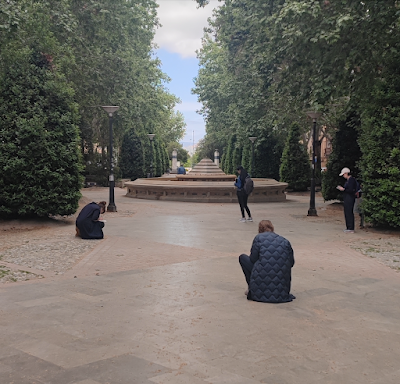Between 17 – 26 April, I will be in Granada working alongside collaborators Andrea Coyotzi Borja, Cordula Daus, Paula Urbano, and Lena Séraphin as part of the research project transitory writing in no one’s land. We will be working with PhD researchers from the UNIVERSIDAD DE GRANADA, SPAIN, engaged in collective writing and reading in public space.
The research transitory writing in no one’s land is an inquiry structured as corporeal gatherings, workshops, interweaving situated, performative, embodied and multi-lingual writing as a collective writerly method. What is at stake is the joint action of writing together rather than transference aiming at specific skills or acquisition of knowledge. Embodied writing might give way to a writerly attitude that is receptive to rather than intent on trying to grasp, to somehow penetrate or otherwise know.
Writing as a multi-lingual joint performative activity offers the potential for participants to become aware of one’s cultural disposition and tendencies; how one’s senses and sensitivities might have been culturally conditioned. However, we are not interested in writing from our individual identities as given, as if there was already a perspective to be found in advance of the act of writing. We do not write from who we are, but rather from how we are in the very act of writing.
